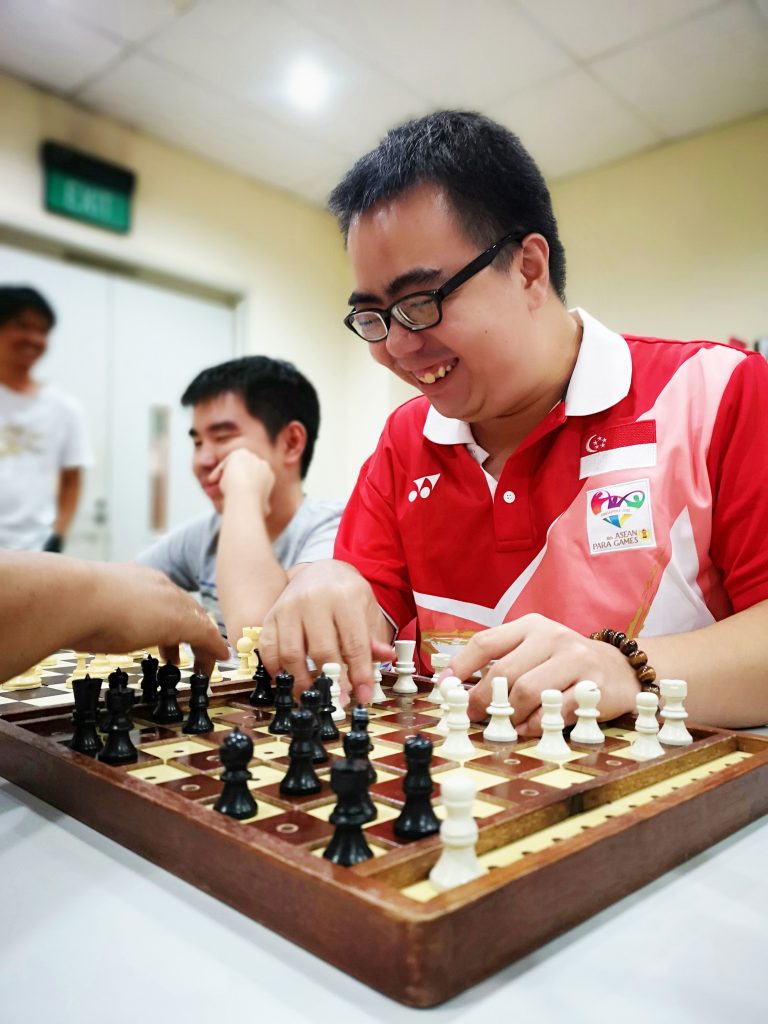While Chess is not offered as an event in the Paralympic Games, it has been included in the ASEAN Para Games since 2005. Athletes may enter in the male/ female individual events or team events. Each team comprises of three athletes and each athlete can only represent one team. The international governing body for chess is the International Blind Sport Federation.
Similar to sports like Boccia, strategy is key in Chess. There are 32 black or white chess pieces, 16 for each player. The game is played over 64 squares on the chess board, arranged in an 8×8 grid. The player with the white Chess pieces will begin playing, and the players will each take turns until the game is over. What each player will try to do is to block his/her opponent’s king, and “check” it in order to win.
Players can compete in the standard, rapid or blindfold event. Chess caters to individuals of different disabilities, including those with physical impairment, visual impairment, and hearing impairment.
For Chess, the sport classifications are as follows:
Benefits of Chess
Chess brings a wide range of brain benefits to players. It enhances one’s mental focus and memory, encouraging brain activity and growth. As chess requires a great deal of strategy and problem-solving skills, it requires planning, foresight as well as extensive practice. Some research has also shown that chess is able to improve one’s IQ level and intellectual ability. As Chess requires two players for each game, it calls for social interaction and promotes relationship building. It encourages communication between the players and hence, reaps social benefits.

